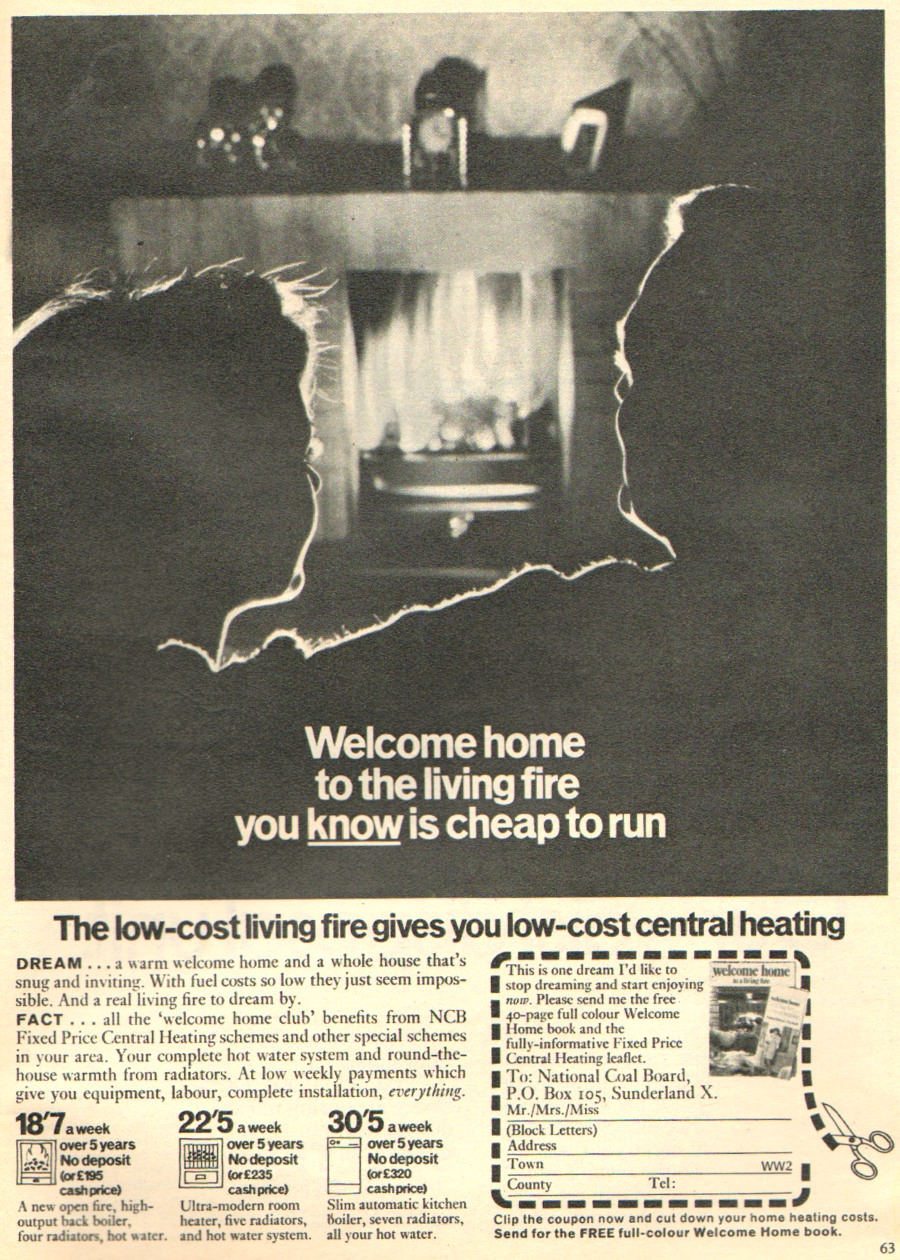Gypsy Creams
The Living Fire

Woman's Weekly / 2nd May 1969
Given that an industrial crisis in the coal industry was to hit the new Heath government only three years after this ad, the upbeat copy about ‘fuel costs so low they seem impossible’ seems grimly ironic, and doesn’t mention that the price must have been a result of government subsidy. Coal was to be the victim of the 1970s’ energy crisis, at least where Britain was concerned. The ‘Three-Day Week’ of early 1974 and the last gasp of the industry, the 1984-1985 miners’ strike, largely finished the domestic use of coal in the UK.
2 Comments
Tanya Jones on 21 September 2011 @ 5pm
The Clean Air Act of 1956 certainly dealt with the use of ‘dirty’ coal in households, which produced the great smog of London in 1952, but yes, obviously even clean coal could contribute to air pollution. However, I think it’s probably the decline of heavy industry in the UK which most improved our air quality. Oddly enough, an old Jackie annual I picked up as a child from a boot sale had a reference to that pile-up in 1971; in a comic strip depicting the life of a girl in her late teens, her boyfriend dies in a motorway pile-up in fog! Reading it in the late ’80s, that already seemed strange to me, as I rarely heard about motorway pile-ups. As well as there not being the pollution around to cause that sort of fog, I also suspect that driving has improved, along with traffic management.
Charlie Albright on 21 September 2011 @ 2pm
The rich thick fogs we use to have seemed to fade with the decline of coal use?
The old episode of ‘On the Buses’ where they are stuck in a bus in the fog for the night seems far fetched now, but was actually very believable at the time.
IIRC In the winter of 1971 there was a totally horrific pile up on the M1 due to fog and thankfully it was I believe the last time something on that scale happened again